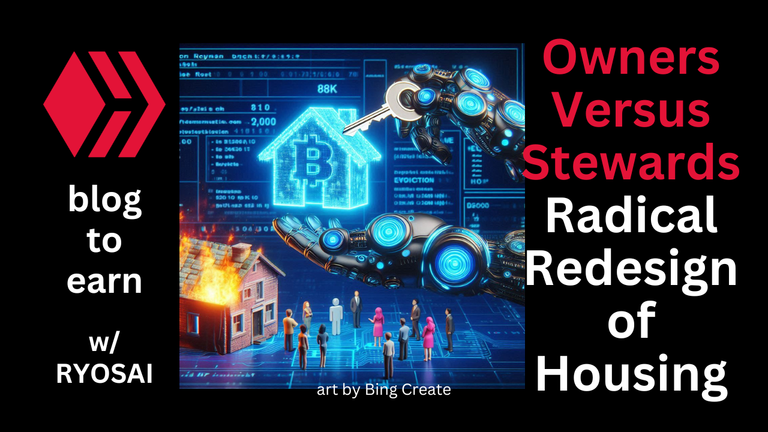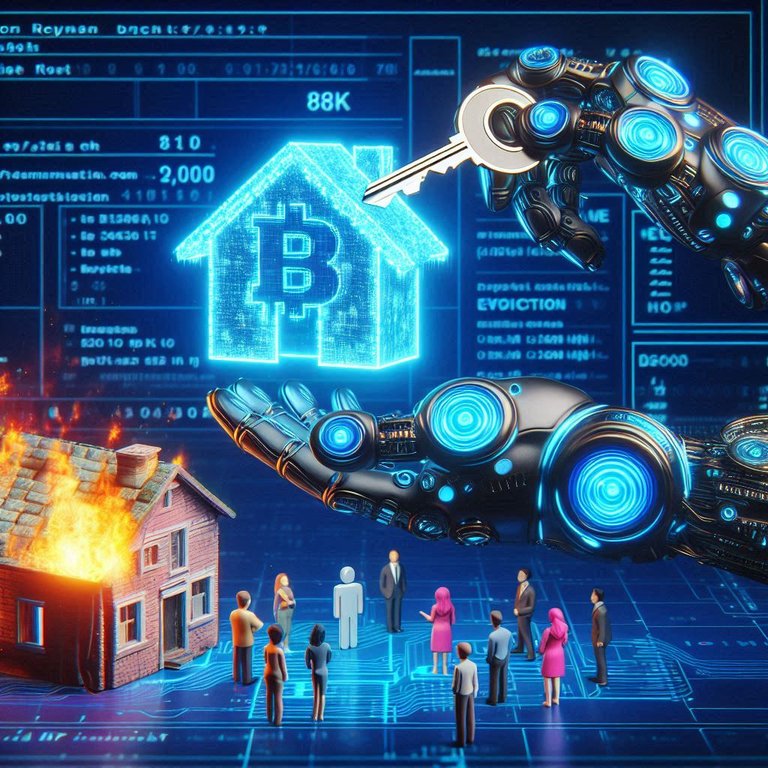
A Blockchain-Powered Future: Collective Ownership and Rewarding Stewardship
Imagine a world where all property is owned collectively, where every act of care, maintenance, and improvement is fairly rewarded, and where no one is left homeless because housing is a shared resource rather than a speculative commodity.
This may sound like utopian fiction, but with blockchain technology, decentralized governance, and tokenized economies, such a future is not only imaginable—it's within reach.
The Problem: Private Property vs. Collective Well-Being
Under capitalism, land and housing are treated as investment vehicles, leading to:
- Skyrocketing rents and unaffordable homes
- Vacant properties held by speculators while people sleep on streets
- Wasteful resource hoarding instead of community stewardship
What if, instead, we viewed land and housing as commons—resources managed collectively for the benefit of all?

How Blockchain Enables a Stewardship-Based Economy
1. Decentralized Land Registries & DAO-Owned Housing
Blockchain can replace traditional deeds with transparent, tamper-proof land registries. Communities could form Decentralized Autonomous Organizations (DAOs) to collectively own and manage property.
- Example: A neighborhood DAO acquires apartment buildings, and residents govern them via smart contracts, ensuring fair rent and maintenance.
2. Tokenized Stewardship Rewards
Instead of landlords profiting from rent, stewards (those who maintain and improve properties) could earn tokens for their contributions.
- Use Case: A person helps renovate a community-owned home and receives "Stewardship Tokens", redeemable for goods, services, or voting power in the DAO.
3. Universal Basic Housing (UBH) via Smart Contracts
A portion of collectively owned housing could be allocated as a public good, with blockchain ensuring fair distribution. Smart contracts could automate:
- Priority access for those in need
- Maintenance incentives for residents who upkeep units
- Anti-hoarding mechanisms (e.g., unused spaces get reassigned)
4. Reputation-Based Governance
A decentralized reputation system could track contributions to communal living:
- Those who actively participate in upkeep earn more governance rights
- Bad actors (e.g., those who damage property) lose privileges
Would This Really Work? Challenges & Considerations
- Cultural Shift Required – Moving from "ownership" to "stewardship" requires deep societal change
- Preventing Exploitation – Systems must be designed to avoid new forms of inequality (e.g., token whales dominating DAOs)
- Legal & Regulatory Barriers – Governments must recognize blockchain-based land rights and collective ownership models
Conclusion: A New Social Contract
This vision goes beyond charity—it's about redefining value. In a world where caretaking is incentivized, where housing is a right rather than a privilege, and where blockchain ensures transparency and fairness, we could eliminate homelessness not through Band-Aid solutions but through systemic transformation.
Is this future possible? With the right technology and collective will, yes.
What do you think? Could you see yourself thriving in a stewardship-based economy?
Let's discuss in the comments!


